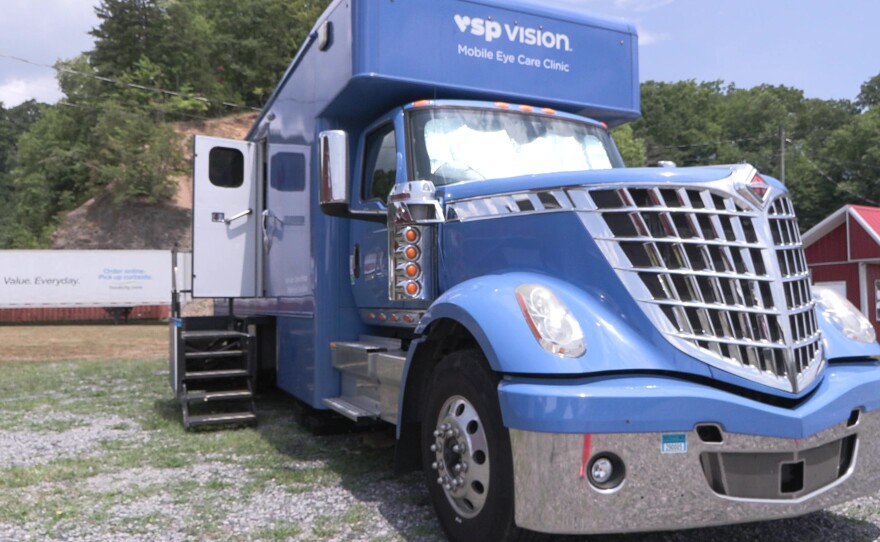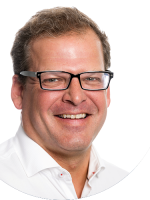TRANSCRIPT OF VIDEO
TERESA OWENS TYSON: We have four mobile clinics that go around to the area. We are the oldest mobile free clinic in the nation. We do have a lot of black lung here, coal miners' pneumoconiosis in the region. As well, we have high rates of smoking, unfortunately, in the region. So, we are actually going out and finding a great burden of, unfortunately, lung cancer in the region. The Health Wagon was started, it was founded by a Catholic nun, Sister Bernie Kenny. She came from Massachusetts at the request of the Richmond Diocese because of the inherent poverty here. And she literally started dispensing healthcare out of the back of a Volkswagen Beetle, hence the name of the Health Wagon.
PAULA HILL-COLLINS: We take no insurance and underinsured. A lot of patients are underinsured, and those are the patients that we see. Anymore, most people have catastrophic insurance only. A $1,000 deductible is a low deductible anymore. So, patients needing their medication, I have a schoolteacher, her husband has diabetes. His insulin is $3,000 a month. He has to meet his deductible for his insulin before his insurance will pay for it. These are who we're seeing.
OPTOMETRIST: We've got some letters in red and letters in green there.
DEBBI GIERAT: I don't have insurance, so it's incredibly helpful and they're very gracious to give their time. And I'm very thankful. I cry every year. I've had X-ray services today, CT services today, optical services, and a mammogram.
DR. JAMES NEWBY: There’s a healthcare gap in this vicinity, so a lot of people can't get the healthcare that's required. So, this is sort of a stop gap for them to come in, get things taken care of.
PAULA HILL-COLLINS: 30 miles here is not like 30 miles on the interstate. You're talking about an hour and a half drive, probably, and with very treacherous roads, actually. And they can't always come and have labs drawn. We can draw labs, we can connect them to the University of Virginia Telehealth. We can see them.
DONALD PURDIE: This is a SpaceX Starlink mobile dish. The purpose, of course, is to be able to get connectivity anywhere. So, in this instance, with the Health Wagon, the idea is to be able to get into the areas where internet is not available and then be able to work with patients to have a better health outcome.
PAULA HILL-COLLINS: Medications go here, and then if we brought you on back here, we actually have an exam room where Teresa and myself do pap smears.
OPTOMETRIST: 5 better?
PATIENT: That one's better.
TERESA OWENS TYSON: Keeping the money coming in, that is the most difficult part of this. There's a lot of foundations. Although we give care that's free, it's not free to give that care. It is expensive to give that care. Our budget is in excess of $6 million annually.
NONA MCDANIEL: It's hard for us, and I know it's hard for people that's not got anything to have healthcare. And it's truly a blessing for this to be up here.
DEBBI GIERAT: To get through to the system when you don't have insurance, oftentimes, you're getting charged just to make the appointment and then they make you the next appointment before they can get you to the next appointment and you haven't had any services. So, here, given what I've had done today thus far in the limited hours that I've had, I would've been back and forth or elsewhere, maybe Morristown, maybe Knoxville, maybe elsewhere. And it would be there and back for each test multiple times. Sure. Wow, you are quick!
OPTOMETRIST 2: Go ahead and take them out and try them on.
Debbi Gierat tries on glasses.








